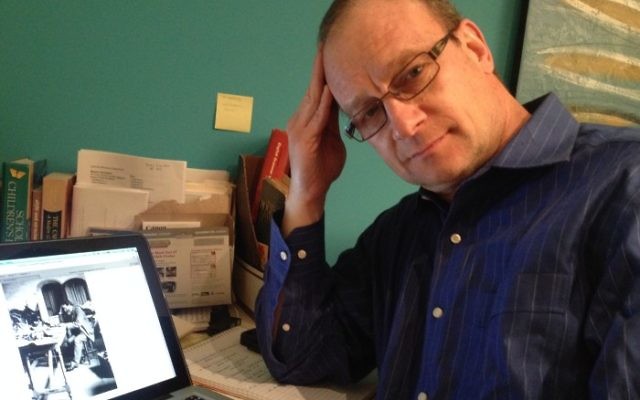Waiting Out Winter in America
As he ponders the season, Dave finds relevance in the metaphor of America as a garden in which the roots have not been severed, but that also needs a great deal of work.
Dave Schechter is a veteran journalist whose career includes writing and producing reports from Israel and elsewhere in the Middle East.
More than three decades living in this more temperate clime has convinced me that winter is best remembered nostalgically.
Growing up north of Chicago, there were days when I trudged to school through deep snow, wearing black rubber boots with metal buckles, and nights when I shoveled the driveway from the garage to the street, turned around, and shoveled my way back.
In college, the deeper the Iowa snow, the greater the effort students made to get to class. A few years later, in my first job, I reported on a community that straddled the Mississippi River. One January morning, my car disappeared beneath the drifts outside my apartment. The newspaper dispatched a pickup truck with tire chains to ferry me to work. I spent three days in the newsroom, writing hundreds of inches of copy printed (pre-internet) in newspapers that were delivered days late.
In all of our years in Atlanta, only one storm has met my Midwest standards for a blizzard, featuring hours of snow blowing horizontally. That was in March 1993, three days after our middle child was born, on the same day that we moved into the house we’ve occupied for his nearly 28 years. (We had joked about those trains heading toward each other on the same track.) The blizzard knocked out electricity, with a newborn present and the streets impassable. The neighbors, whom we had not met, were away. I looted their wood pile, apologizing a few days later when introductions were made.
That storm was more the exception than the rule. By and large, winter in Atlanta is a tease.
Friends and family up North laugh when a forecast of snow or ice down South comes with video of shoppers clearing grocery shelves. They chuckled at “Snowmaggedon” in 2014, when 2-plus inches of snow, a coating of ice, and an ill-timed, nearly simultaneous mass exodus from workplaces turned the interstates into parking lots and forced thousands to seek shelter for the evening.
Given the year just ended, from which barely anyone emerged unscathed in some fashion, we deserve an easy winter.
This household certainly could use a break. Too much time is being spent keeping track of oncological appointments. The other day a friend wished me the patience of Job, which sent me to read about the biblical character who challenged the divine and endured – without losing his faith – retribution from the almighty, until being restored to a life with a measure of happiness and reward.
In a different way, and at the hands of humans, America’s faith in itself has been tested. After repeated collisions with a careening vehicle, the good news is that the guardrails that protect our democracy bent but did not break, though certain sections need repair and reinforcement.
When delivering the annual state-of-the-union address, presidents traditionally — but not always — proclaim that the state of the union is “strong.” Post-Watergate and three months before the last Americans were airlifted out of Vietnam, President Gerald Ford in 1975 pronounced that “the state of the union is not good.” In 1983, President Ronald Reagan declared, “the state of the Union is strong, but the economy is troubled.”
With the trials of the past year in mind, I note these words from President George H.W. Bush in 1991: “And the state of our Union is the union of each of us, one to the other, the sum of our friendships, marriages, families and communities.”
During the pandemic linked to the deaths of more than 360,000 of their fellow citizens, Americans have looked to their government, often in dismay. In response, they have focused inward, to care for their friendships, marriages, families and communities. If there are positives to be taken from this period, this certainly is one.
Fifty years ago, a fictional character offered simple words that were taken as complex wisdom. “As long as the roots are not severed, all is well. And all will be well in the garden . . . if you love your garden, you don’t mind working in it, and waiting. Then in the proper season you will surely see it flourish,” Chauncey Gardiner said in “Being There,” Jerzy Kosinski’s 1970 novel.
America’s roots are not severed, but there is work to be done in the nation’s garden. In the proper season, hopefully all will be well.
But for now, winter is upon us.




comments